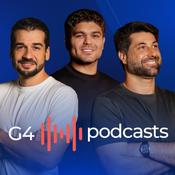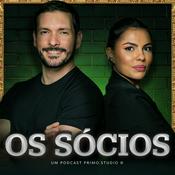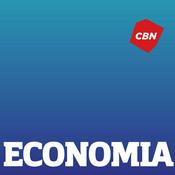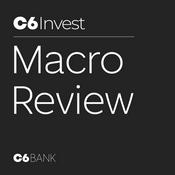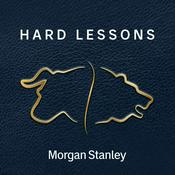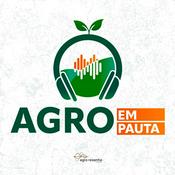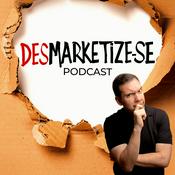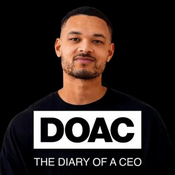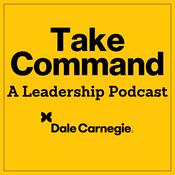447 episódios
- China’s banking sector has expanded from a fragile, state-dominated system in the 1990s into the largest in the world. But this increased scale has not brought with it a shift toward market-driven finance, with the core logic of state-directed control over credit remaining a central feature of Chinese banking. In this episode of The Sound of Economics, Yuyun Zhan sits down with Alicia García-Herrero and Fraser Howie to examine how banks continue to serve state priorities, funnelling household savings into politically favoured sectors while sustaining local governments and state-owned firms.
This episode is part of the ZhōngHuá Mundus series of The Sound of Economics. ZhōngHuá Mundus is a newsletter by Bruegel, bringing you monthly analysis of China in the world, as seen from Europe. Sign up now to receive it in your mailbox! - In this episode of The Sound of Economics, host Rebecca Christie talks about nature and markets with Bruegel’s Heather Grabbe and Estelle Cantillon, FRNS research director at the Université Libre de Bruxelles. They explore policy efforts to make protecting natural resources more of a financial priority, such as nature credits and nature shares, as well as the difficulty of setting up these kinds of systems. How can public money and private investors cooperate? How does a program like this avoid cheating, moral hazard and failure to deliver? Both government resources and investor buy-in will be necessary for habitats and biodiversity to find their way onto the world’s balance sheets.
Relevant research:
Cantillon, E., E. Lambin and B. Weder di Mauro (2025) 'Policy Insight 145: Designing and scaling up nature-based markets', CEPR Policy Insight, 145, CEPR Press, available at https://cepr.org/publications/policy-insight-145-designing-and-scaling-nature-based-markets
Fiore, A. and H. Grabbe (2025) ‘Nature markets: how can credits and shares provide durable, additional finance?’ Policy Brief 20/2025, Bruegel
Pisani-Ferry, J., B. Weder di Mauro and J. Zettelmeyer (eds) (2025) 'Paris Report 3: Global Action Without Global Governance: Building coalitions for climate transition and nature restoration', Report, CEPR Press, available at https://cepr.org/publications/books-and-reports/paris-report-3-global-action-without-global-governance-building - In this episode of The Sound of Economics, host Rebecca Christie sits down with Bruegel’s Pascal Saint-Amans and Roel Dom to talk taxes. What happened to the OECD global minimum tax and the digital services levy debate in the wake of Washington’s turn against international agreements? How is the European Union gathering resources for its next budget? What is the difference between a tax and a levy – and why does it matter? Tax policy is social policy, and Bruegel’s new EU Tax Observatory project will shine a light on what’s going on.
Relevant Research:
Christie, R. (2021) ‘Do robots dream of paying taxes?’, Policy Brief, 05 October, Bruegel, available at: https://www.bruegel.org/policy-brief/do-robots-dream-paying-taxes
Darvas, Z., R. Dom and M. Lappe (2025) 'CORE concerns: why a turnover based levy is wrong for the EU budget’, First Glance, 22 July, Bruegel, available at: https://www.bruegel.org/first-glance/core-concerns-why-turnover-based-levy-wrong-eu-budget
Dom, R. (2026) 'How the global minimum tax amendments could reshape Europe’s tax incentives', Analysis, 14 January, Bruegel, available at: https://doi.org/10.64153/WEHR5625
Dom, R., C. Greppi-Maturana and P. Saint-Amans (2025) ‘Shifting priorities, slow progress: an analysis of EU tax recommendations,’ Working Paper 29/2025, Bruegel, available at: https://doi.org/10.64153/SIZA8089
Saint-Amans, P. (2026) ‘With Trump, what is left of the global minimum tax?’, Newsletter, 19 January, Bruegel, available at: https://www.bruegel.org/newsletter/trump-what-left-global-minimum-tax
Saint-Amans, P. (2026) 'Has the global minimum tax survived Trump?' Analysis, 13 January, Bruegel, available at: https://doi.org/10.64153/HIUN6608 - In this episode of The Sound of Economics, host Rebecca Christie sits down with Bruegel’s Ignacio García Bercero and Ben McWilliams to talk about the evolution of the European Union’s carbon border adjustment mechanism, known as CBAM. When will companies start paying? Which countries and sectors will be hit the hardest? And how will cross-border carbon levies work for electricity markets, given how hard it is to trace emissions to electrons? We discuss what it means to crack down on carbon leakage and how the EU can make the most of its new tools going forward.
Relevant Research:
CBAM and carbon pricing: forging fair paths to climate stability, Bruegel Event, 22 May 2024
McWilliams, B. R. Stubbe and G. Zachmann (2025) 'The case for delaying the application of the EU’s carbon border levy to electricity', Analysis, 19 November, Bruegel, available at https://doi.org/10.64153/ZFMB9781
Zachmann, G. and McWilliams, B. (2020) 'A European carbon border tax: much pain, little gain', Policy Contribution 05/2020, Bruegel, available at https://www.bruegel.org/policy-brief/european-carbon-border-tax-much-pain-little-gain - In this episode of The Sound of Economics, host Yuyun Zhan is joined by Bruegel Senior Fellow Alicia García-Herrero and Jürgen Matthes of the German Economic Institute to discuss a growing concern for Europe’s economy: the undervaluation of Yuan, the Chinese currency and its impact on European competitiveness.
Is China’s price advantage the result of productivity and innovation, or of deeper structural distortions such as subsidies, overcapacity, and currency management? And what policy options does Europe realistically have when existing trade defence instruments seem ill-suited to address economy-wide price and exchange-rate effects?
Relevant research:
Matthes, Jürgen, 2025, Yuan Undervaluation against the Euro: Unfair Cost Advantages for China?!, IW-Report, Nr. 36, Köln
García-Herrero, A., T. Storella and J. Xu (2025) ‘European companies operating in China: from digging in to rethinking their presence’, Working Paper 14/2025, Bruegel
This episode is part of the ZhōngHuá Mundus series of The Sound of Economics. ZhōngHuá Mundus is a newsletter by Bruegel, bringing you monthly analysis of China in the world, as seen from Europe. Sign up now to receive it in your mailbox!
Mais podcasts de Negócios
Podcasts em tendência em Negócios
Sobre The Sound of Economics
The Sound of Economics brings you insights, debates, and research-based discussions on economic policy in Europe and beyond.
The podcast is produced by Bruegel, an independent and non-doctrinal think tank based in Brussels. It seeks to contribute to European and global economic policy-making through open, fact-based, and policy-relevant research, analysis, and debate.
Site de podcastOuça The Sound of Economics, PrimoCast e muitos outros podcasts de todo o mundo com o aplicativo o radio.net
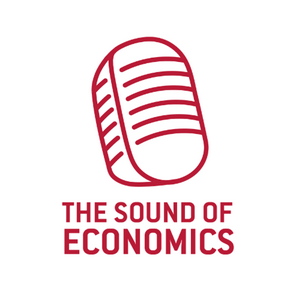
Obtenha o aplicativo gratuito radio.net
- Guardar rádios e podcasts favoritos
- Transmissão via Wi-Fi ou Bluetooth
- Carplay & Android Audo compatìvel
- E ainda mais funções
Obtenha o aplicativo gratuito radio.net
- Guardar rádios e podcasts favoritos
- Transmissão via Wi-Fi ou Bluetooth
- Carplay & Android Audo compatìvel
- E ainda mais funções


The Sound of Economics
Leia o código,
baixe o aplicativo,
ouça.
baixe o aplicativo,
ouça.





